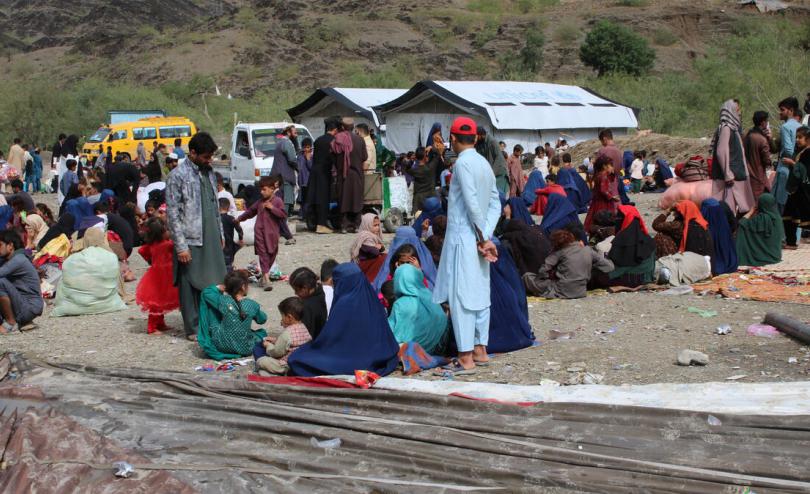The Health Status Report of Afghan Refugees in KP details the current health status of Afghan refugees residing in Pakistan. For over four decades, Pakistan has hosted Afghan refugees, providing essential social services. The nation accommodates 1.28 million registered Afghan refugees and nearly one million unregistered Afghan nationals. Over time, Pakistan’s collaboration with Afghanistan, the UN, and international partners has shifted from basic care to strengthening the public health system. Afghan refugees now have equal access to healthcare services on par with Pakistani nationals. However, the unique vulnerabilities, high poverty levels, and low education among refugees necessitate specific health measures.
This report, supported by IRC and the Commissionerate for Afghan Refugees (CAR) KP, documents the health status of Afghan refugees. The study involved desk reviews, secondary data analysis, and primary data collection from key informants and consultations with Afghan refugees and host communities. KP accommodates 52.3% of the registered Afghan refugees in Pakistan, totaling 670,524 individuals.
Demographics and Education
A significant portion of the Afghan refugee population in Pakistan is youth aged 15-24 years, constituting 21.5%. Child marriage and labor are prevalent, with education access being a critical issue, especially for girls. An alarming 82% of working children do not attend school. Overall, 69% of PoR cardholders have no education, and 92.9% of those aged 15 and above report no income or earnings below the minimum wage.
Healthcare Access
The report assesses that registered Afghan refugees have healthcare access at par with Pakistani nationals. Despite this, Pakistan’s healthcare system faces significant challenges, ranking 154 out of 189 countries, with 70% of healthcare costs paid by patients. The total health expenditure per capita in Pakistan was USD 38 in 2020, significantly lower than the WHO’s minimum requirement of USD 86.
Cultural Barriers and Health Expenses
Cultural barriers affect healthcare access for Afghan women and girls, with 63% not allowed to receive treatment from male providers. Most refugee households incur out-of-pocket expenses for healthcare, with 50% unable to afford antenatal care fees, 39% finding facilities too far, and 28% facing long waiting times. Data from the Hayatabad Medical Complex shows a six-fold increase in Afghan patient admissions in 2022, with significant costs incurred for cardiovascular treatments.
Challenges and Recommendations
Challenges include the lack of awareness among 75% of refugees about free life-saving care during emergencies. Institutional deliveries among Afghan refugees are high at 83%, but only 52% of newborns receive birth certificates. While 85% of refugee children have vaccination cards, only 13% of refugee women use contraceptive methods. Mental health issues are prevalent, with a high proportion of refugees having chronic diseases and turning to the private sector for medicines, adding financial strain.
Recommendations
The Health Status Report of Afghan Refugees in KP aligns with the 2018 UN Global Compact on Refugees, aiming to ease pressure on host countries and ensure assistance delivery through local and national service providers. The KP government has adopted the concept of Universal Health Coverage (UHC) and has finalized a UHC Benefit Package.
Key recommendations include establishing a Community Health Worker (CHW) network within Refugee Villages (RVs) and linking them to nearby health centers. Support for community interventions, tailored BCC for Afghan refugees, and training CHWs in priority services like family planning, nutrition, and mental health are crucial. Additionally, mobilizing outreach visits, documenting MHPSS learnings, and collaborating with KP’s DoH Mental Health Unit are recommended.
At the primary healthcare (PHC) level, additional support is needed for facilities serving refugee populations. For areas far from public sector facilities, alternate service delivery arrangements are necessary. Special consideration for RV elders’ inclusion in health programming, strengthening CHW ties, and capacity building for Afghan-specific health conditions are also recommended.
At the hospital level, the inclusion of Afghan refugee families in the Sehat Card Plus insurance scheme is suggested to enable access to specialized care. The premium for the Sehat Card Plus KP is PKR 2,849 per family.
The Health Status Report of Afghan Refugees in KP emphasizes the need for strategic investments in healthcare delivery systems to improve health outcomes for Afghan refugees in Pakistan.


